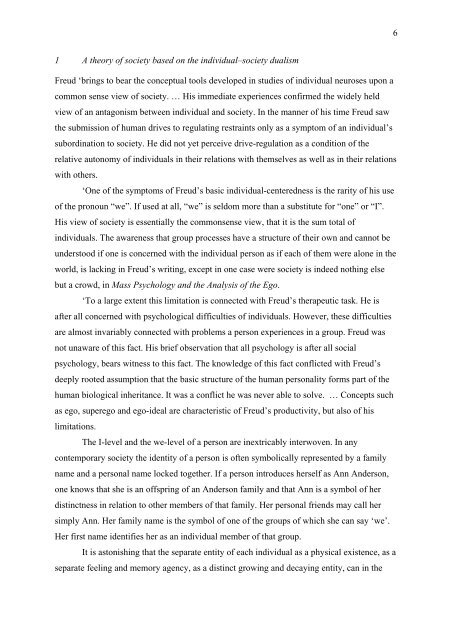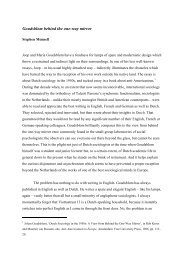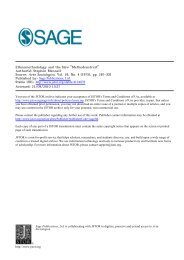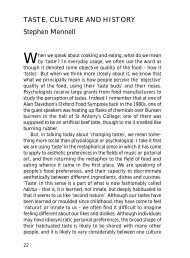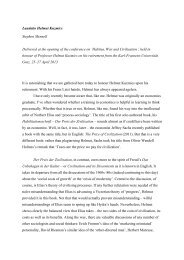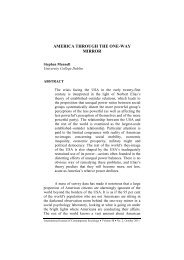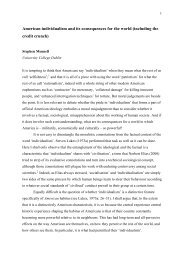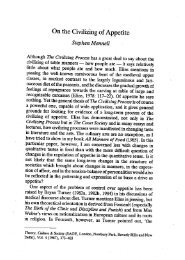paper - Stephen Mennell
paper - Stephen Mennell
paper - Stephen Mennell
You also want an ePaper? Increase the reach of your titles
YUMPU automatically turns print PDFs into web optimized ePapers that Google loves.
6<br />
1 A theory of society based on the individual–society dualism<br />
Freud ‘brings to bear the conceptual tools developed in studies of individual neuroses upon a<br />
common sense view of society. … His immediate experiences confirmed the widely held<br />
view of an antagonism between individual and society. In the manner of his time Freud saw<br />
the submission of human drives to regulating restraints only as a symptom of an individual’s<br />
subordination to society. He did not yet perceive drive-regulation as a condition of the<br />
relative autonomy of individuals in their relations with themselves as well as in their relations<br />
with others.<br />
‘One of the symptoms of Freud’s basic individual-centeredness is the rarity of his use<br />
of the pronoun “we”. If used at all, “we” is seldom more than a substitute for “one” or “I”.<br />
His view of society is essentially the commonsense view, that it is the sum total of<br />
individuals. The awareness that group processes have a structure of their own and cannot be<br />
understood if one is concerned with the individual person as if each of them were alone in the<br />
world, is lacking in Freud’s writing, except in one case were society is indeed nothing else<br />
but a crowd, in Mass Psychology and the Analysis of the Ego.<br />
‘To a large extent this limitation is connected with Freud’s therapeutic task. He is<br />
after all concerned with psychological difficulties of individuals. However, these difficulties<br />
are almost invariably connected with problems a person experiences in a group. Freud was<br />
not unaware of this fact. His brief observation that all psychology is after all social<br />
psychology, bears witness to this fact. The knowledge of this fact conflicted with Freud’s<br />
deeply rooted assumption that the basic structure of the human personality forms part of the<br />
human biological inheritance. It was a conflict he was never able to solve. … Concepts such<br />
as ego, superego and ego-ideal are characteristic of Freud’s productivity, but also of his<br />
limitations.<br />
The I-level and the we-level of a person are inextricably interwoven. In any<br />
contemporary society the identity of a person is often symbolically represented by a family<br />
name and a personal name locked together. If a person introduces herself as Ann Anderson,<br />
one knows that she is an offspring of an Anderson family and that Ann is a symbol of her<br />
distinctness in relation to other members of that family. Her personal friends may call her<br />
simply Ann. Her family name is the symbol of one of the groups of which she can say ‘we’.<br />
Her first name identifies her as an individual member of that group.<br />
It is astonishing that the separate entity of each individual as a physical existence, as a<br />
separate feeling and memory agency, as a distinct growing and decaying entity, can in the


